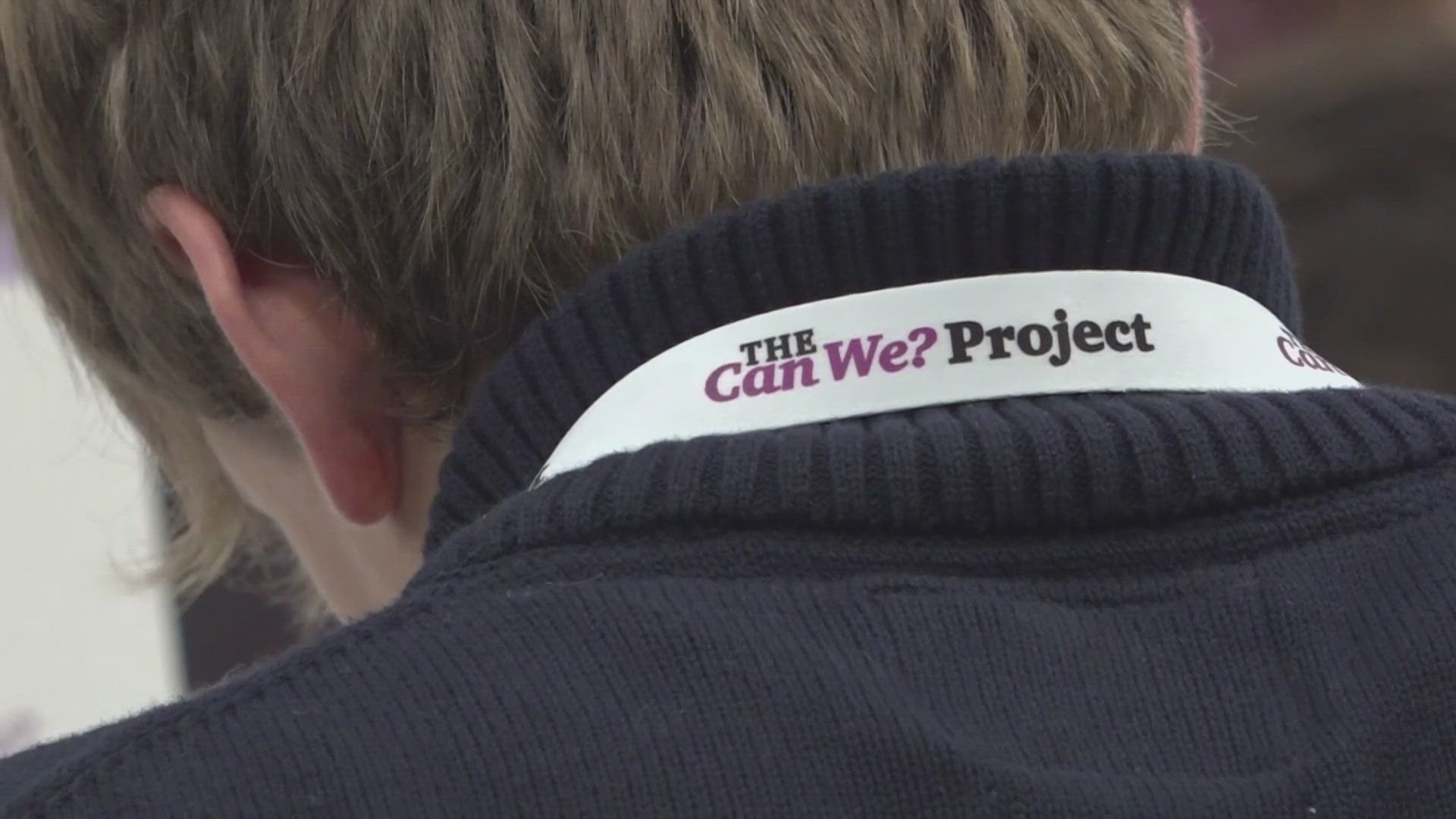AUGUSTA, Maine — Nearly 250 high school students from 14 schools across Maine gathered Tuesday in Augusta to do something many adults have a hard time doing: finding common ground.
It's part of an effort called the Can We? Project, which was started by Waynflete School in Portland.
The project's goal is to help students learn how to have conversations in a respectful, constructive way.
This particular gathering is called the Can We? Connect Conference.
"It just helps build that network, and across the divide," John Holdridge, a director of the Can We? Project, said. "We like to think that we're helping to bring the two Maines together that we're always talking about and find a place that we can really just be one Maine."
Holdridge said the students who attended the conference weren't required to participate, but they chose to sign up.
"The No. 1 reason that they express that they want to be involved is they want to be in a place where they can listen to what their peers are thinking," Holdridge said. "They want to be in a space that can be nonjudgmental, a space where they don't feel like they're going to be judged."
Jacob Posik, who is a lobbyist for Maine Policy Institute, is a lead facilitator with the Can We? Project.
He said he wants students to understand the differences among their peers, including how and why they have a certain viewpoint.
"I think people are just so averse to conflict that very rarely do you intentionally engage in it," Posik said. "We like to say constructive conflict is good."
The day featured two breakout sessions.
One was centered around understanding people from different Maine communities and what life is like in that particular area.
The second breakout session centered around students bringing up topics and issues that are important to them.
Through both break-out sessions, it was the students themselves who led the conversations.
"If we're teaching these young people these skills now, and they're practicing them, and they take them to college or they take them to the professional world, whatever their next step is, that's how we improve our communities on the whole," Posik said.
A big takeaway organizers wanted students to walk away with is that having differing viewpoints is OK.
"There are students who have called our work the anti-debate league, which I really like because this isn't about proving that I'm right and you're wrong or anything like that," Posik said.
Adding, taking a moment to understand those differences and learning how to make that divide a little narrower is what a gathering like Can We? Connect is all about.
"High school students are just steps away from becoming the leaders of the future," Holdridge said.

